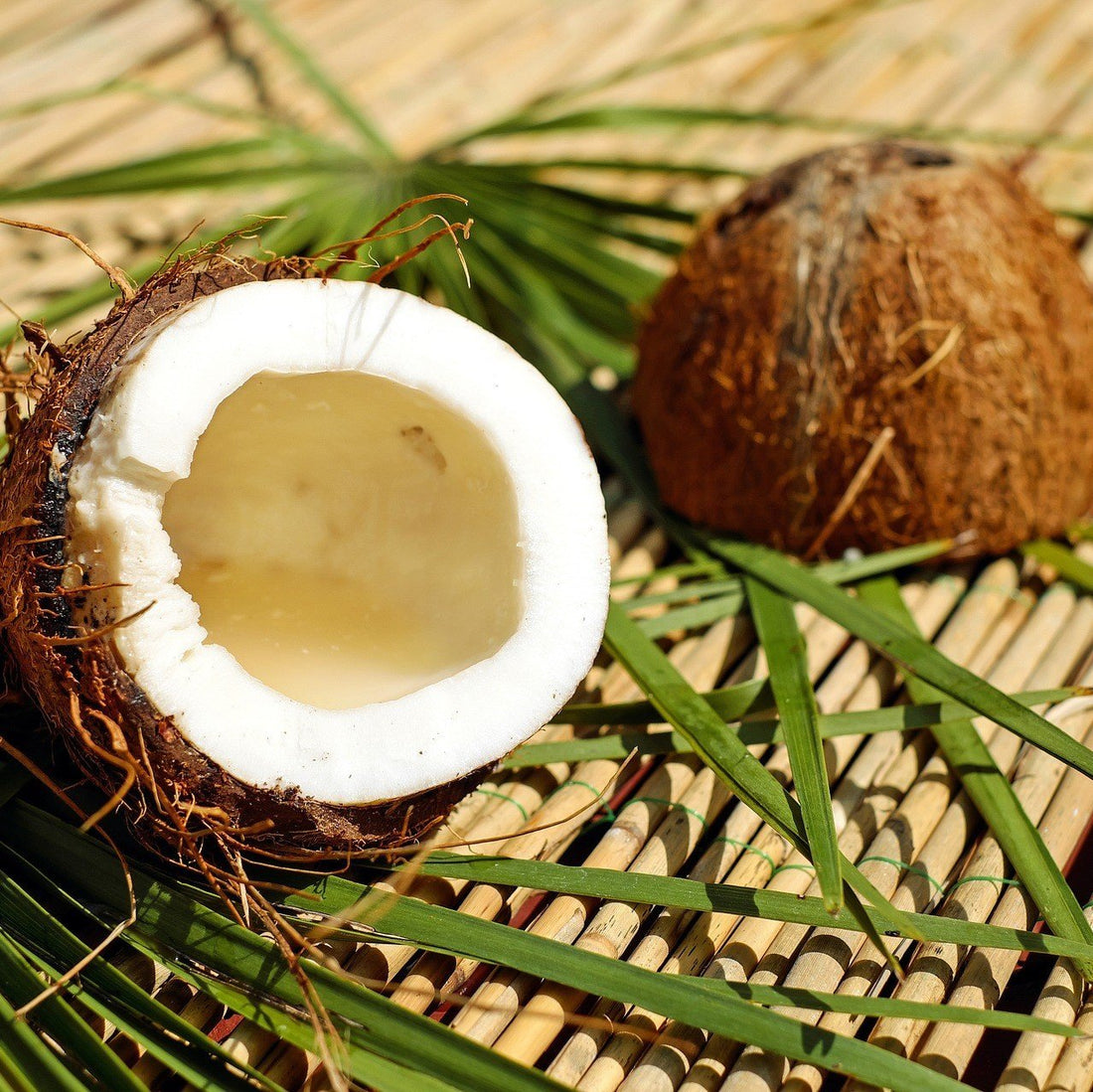
All You Need To Know About Your Skin, Coconut Oil, and Lauric Acid
It seems like everyone uses coconut oil for everything these days... Frizzy hair? Coconut Oil. Cavities? Coconut Oil. Ran out of lube? Coconut Oil. The list goes on and on. So what's all the fuss about, and why is coconut oil so amazing?
What is Lauric Acid?
Lauric acid is a fatty acid that can be found in foods contining saturated fats. It is classified as a lipid, a class of organic compounds, and another name for fats. Fats are required for human life, as they contribute to the construction of cellular membranes, and keep our bodies from starving. There are two basic kinds of fats, known as saturated or unsaturated, both of which are required by the human body for survival.
Lauric acid is, shall we say, critically acclaimed for its antimicrobial properties. On its own, lauric acid has certian traits that allow it to fight disease, but when digested, lauric acid interacts with enzymes in the digestive tract to create monolaurin. Monolaurin is an even more powerful antimicrobial agent, capable of inhibiting the growth of pathogens and viral infections such as the flu, common cold and more.
Why Coconut Oil?
Coconuts and coconut products are the number one source of lauric acid. Many of the benefits of coconut oil that have been researched and proven are directly linked to the lauric acid content in coconuts. Awesome part about Nature's Way Coconut Oil? It comes in liquid form in different flavors (for cooking), or can be purchased in an organic solid form.
the number one source of lauric acid. Many of the benefits of coconut oil that have been researched and proven are directly linked to the lauric acid content in coconuts. Awesome part about Nature's Way Coconut Oil? It comes in liquid form in different flavors (for cooking), or can be purchased in an organic solid form.
Coconut Oil also contains many other fatty acids, here's the basic breakdown, along with approximate percentages:
- Lauric Acid 48%
- Linoleic Acid 2%
- Oleic Acid 8%
- Palmitic Acid 9%
- Stearic Acid 3%
- Myristic Acid 19%
What are the Skin Benefits?
Because coconut oil contains antimicrobial properties thanks to lauric acid, coconut oil can be used effectively as a treatment for acne. The lauric acid works to kill the bacteria that causes breakouts and inflamation. It has actually been proven to stop bacterial growth over 15 times better than benzoyl peroxide, which is the chemical added to the majority of OTC acne products. Read more about the 2009 study from The Journal of Investigative Dermatology.
Coconut oil is attributed to many other skin benefits and uses, including, but not limited to, moisturizer, sun protection (SPF 4, don't chuck the Sun Screen), anti-aging & wrinkle prevention, lip balm, and natural lubricant.
Why Coconut Oil Soap?
When used in the process of soap making, coconut oil adds all of its natural qualities, and then some. Soaps containing coconut oil will produce a rich, creamy lather. This lather is so impressive that if you used a bar of soap made from 100% coconut oil, you could actually get bubbles in salt water! This attribute leads to soaps that are created with high percentages of coconut oil being referred to as "Seaman's Soap", and are very popular in seaside locations. The fact that the oil is a solid at room temperature (it's melting point is 76 degrees Fahrenheit) causes it to create a hard bar of soap. A wonderful thing in the handcrafted soap world, a hard bar of soap will generally last much longer than a soft bar.
lather is so impressive that if you used a bar of soap made from 100% coconut oil, you could actually get bubbles in salt water! This attribute leads to soaps that are created with high percentages of coconut oil being referred to as "Seaman's Soap", and are very popular in seaside locations. The fact that the oil is a solid at room temperature (it's melting point is 76 degrees Fahrenheit) causes it to create a hard bar of soap. A wonderful thing in the handcrafted soap world, a hard bar of soap will generally last much longer than a soft bar.
Updated 9.28.20
